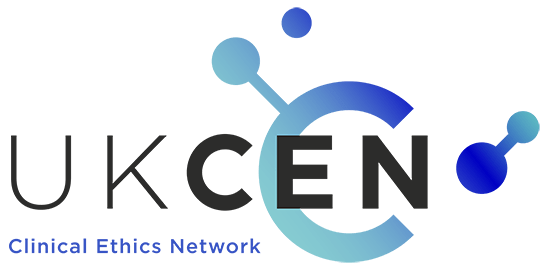What are Clinical Ethics Committees?
A Clinical Ethics Committee or Advisory Group (CEC) is sometimes known as a hospital ethics committee or a clinical ethics forum. CECs are distinct from the more formally constituted Research Ethics Committees, which are overseen by the Health Research Authority. CECs are common in many countries worldwide.
CECs are multidisciplinary groups, including health professionals and lay members, which aim to provide support for decision-making on ethical issues arising from the provision of patient care within NHS hospitals (Trusts or Health Boards) and other health care organisations.
The structure of a CEC, the functions it performs and its position within the organisation varies between committees, as each has developed in the context of the particular needs and resources of the organisation. You can read more about what CECs do at Functions of Clinical Ethics Committees.
Some CECs provide general support, relating to any aspect of healthcare across various settings, while other CECs are more specialist in nature. In addition, while many CECs serve a single organisation, some CECs cover more than one organisation, and some cover a variety of healthcare organisations within a particular region. You can read more about committees or other services in your area at Clinical ethics services in your area

A 2012 survey of CECs in the UK gave a snapshot of the position in the UK at that time (you can find the full article here). Key findings included:
- On average, a CEC had 16 members, with the smallest having 8 members and the largest having 33 members

- A wide variety of people sit on CECs. The majority of members have a medical or nursing background but more than half of the CECs surveyed also had a legal member, lay and religious representation
- Most CECs meet monthly or bi-monthly, with many committees also reporting unscheduled meetings to respond to urgent referrals

- Committees have varied functions:
- 76% of committees surveyed had reviewed organisational policies in the last 12 months
- 92% of committees surveyed had responded to requests for support on individual cases in the previous 12 months
- Over 50% of committees surveyed had provided some form of educational activity within their organisation in the previous 12 months
CECs discuss a variety of issues and topics that arise in clinical settings, including:
- Withholding and withdrawing treatment
- DNACPR
- Advance decisions
- Consent
- Capacity
- Refusal of treatment
- Confidentiality
A recent study described the availability, characteristics and role of clinical ethics support services in the UK during the covid-19 pandemic (you can find the full article here). The study found that more services were created during the pandemic, usually taking the form of committees or groups. The authors noted:
“Some services provided moral distress support and educational provision for clinical staff. During the pandemic, services became more responsive to clinicians’ requests for ethics support and advice. More than half of respondents developed local guidance and around three quarters formed links with regional or other local services. Patient and/or family members’ involvement in ethics discussions is infrequent.”
Dittborn et al, Clinical ethics support services during the COVID-19 pandemic in the UK:
A cross-sectional survey. Journal of Medical Ethics 2022; 48: 695
You can read more about some of the key issues and topics encountered by CECs in Clinical Ethics Resources. Guidance on setting-up and running a CEC is available at Guidance for Clinical Ethics Services and related documents are available from Downloads.


